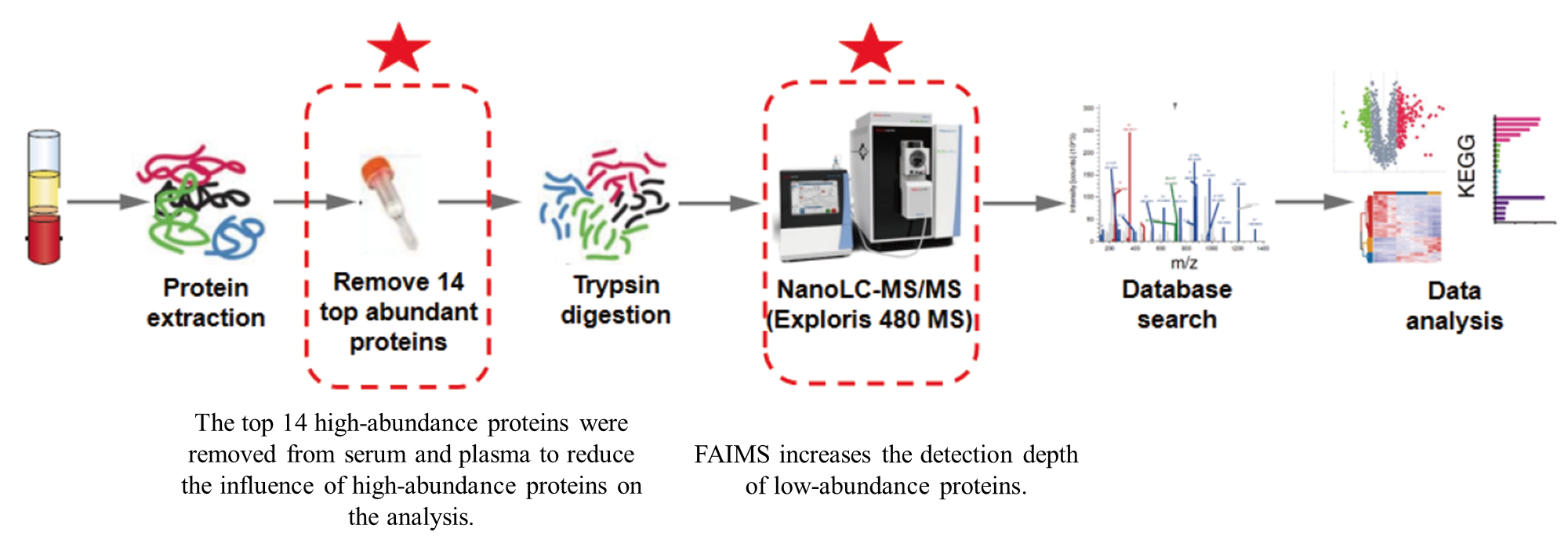Interested in our services
Contact our experts to provide further information



Blood is the most commonly used clinical specimen, where changes in protein levels can serve as markers to indicate the occurrence and progression of various diseases. From alanine transaminase in routine physical examinations to protein markers such as AFP and CA125 for cancer diagnosis, they provide indispensable and critical information for clinical diagnosis. In recent years, with the advancement of mass spectrometry technology, screening for new blood markers through omics methods has become an increasingly important area of research and clinical application.
PTM BIO has launched Blood+/Blood+DIA service, which integrates FAIMS pro ion filtration technology and machine learning biomarker screening methods. This approach is particularly suitable for large-scale cohort sample analysis and provides new and powerful tools for blood biomarker screening.
To address the challenge posed by high-abundance proteins in blood, the common practice is to remove them using kits. However, due to the extremely high content of these proteins, their removal through antibody kits is incomplete, and the residual proteins still have a significant impact on proteome detection. Despite this, the general depth of detection remains in the range of 500-600 [1,2]. If these methods are overused to achieve higher detection depths, it will not only greatly increase the cost but also have a negative impact on the reliability of identification and quantitation.
Is there a solution to the problem of high-abundance proteins? The introduction of FAIMS devices offers a new idea. FAIMS is a gaseous ion filtration device that uses an electric field to deflect certain ion signals, reducing the complexity of the sample and facilitating subsequent mass spectrometry identification of peptide signals. In conventional cell and tissue samples, it can increase the detection depth by about 10%-20%. This principle of "ion filtration" can be maximized when facing samples with high-abundance protein interference in blood.

Interested in our services
Contact our experts to provide further information